Smart Cities Resource Page
Society for Computers and Law Article Series
Presentations and Audio from each Session
The Original Conference Programme
Context
 Glasgow, and many other cities around the world, are part of the new phenomenon of “smart cities” i.e. the notion of creating innovative services, applications and delivery platforms by integrating public and private data sets at a citywide level.
Glasgow, and many other cities around the world, are part of the new phenomenon of “smart cities” i.e. the notion of creating innovative services, applications and delivery platforms by integrating public and private data sets at a citywide level.
Glasgow was awarded £24m in 2012 to run a prototype projects based around smart transport, energy, policing and health to demonstrate how ubiquitous computing might enhance societal, economic and environmental well-being.
This conference, chaired by Prof Lilian Edwards, focused on how contemporary urban life is increasingly marked and shaped by technology, and critically assessed what this means for existing societal norms and regulatory structures.
 While the engineering & architecture worlds are already excited by smart cities, attention from a societal perspective is newer. CREATe, alongside Horizon, are interested in the possibilities of “smart” urban environments for new creative opportunities, including digital walls & graffiti, audience awareness & UGC engagement with sport.
While the engineering & architecture worlds are already excited by smart cities, attention from a societal perspective is newer. CREATe, alongside Horizon, are interested in the possibilities of “smart” urban environments for new creative opportunities, including digital walls & graffiti, audience awareness & UGC engagement with sport.
The event took place on Tuesday 31st March and Wednesday 1st April 2015 at the Technology and Information Centre (TIC) in Glasgow. The TIC is the University of Strathclyde’s £89m state of the art hub that aims to revolutionise the way that researchers in academia and industry collaborate and innovate together.
To find out more about Strathclyde University’s current work in the field of Future Cities, and their innovative new City Observatory project, visit:
- https://www.strath.ac.uk/cities/
- http://www.strath.ac.uk/research/futurecities/observingcitiesinanewlight/
Society for Computers and Law Articles Series
Following from the conference a series of articles is being made available on the Society for Computers and Law website on the Smart Cities theme. Compiled and edited by Lachlan Urquhart, the series will be featured in the June/July issue of Computers & Law, which will focus on Smart Cities from a range of perspectives, with a view to giving technology lawyers a wider understanding of one of the most important developments of this decade and the decades to come. More articles will be added to this section as they are released.
- Rob Kitchin The Promise and Perils of Smart Cities
- Lachlan Urquhart and Ewa Luger Creative Compliance and the Rise of ‘Designers as Regulators’
- Holger Schnädelbach The Built Environment as the Interface to Personal Data
- Rob Procter The Smart City Meets Social Innovation
- Melissa Low Many Smart Cities, One Smart Nation – Singapore’s Smart Nation Vision
- Marko Balabanovic and Paul Galwas Whose Smart City is it Anyway?
Presentations and Audio
Conference Welcome
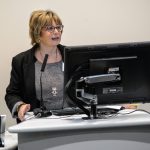 Lilian Edwards
Lilian EdwardsUniversity of Strathclyde
Introduction to the Conference
Session 1: Introductions to Smart Cities: Opportunities and Challenges
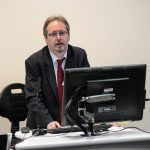 Richard Bellingham
Richard BellinghamUniversity of Strathclyde
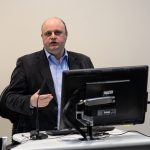 Rob Kitchin
Rob KitchinNational University of Maynooth, Ireland
Keynote: Framing Smart Cities
Download Presentation (PPTX file, 3.2 MB)
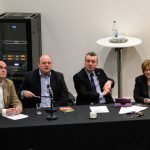 Panel Discussion 1
Panel Discussion 1Richard Bellingham, Alastair Brown, Paul Galwas and Rob Kitchin
Session 2: Understanding Smart Cities Through the Globe
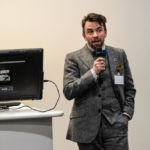 David Murakami Wood
David Murakami WoodQueen’s University, Canada
Keynote: Smart Cities – Variety and Homogeneity
Download Presentation (PPT file, 3.2 MB)
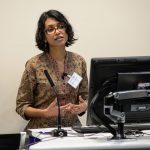 Ayona Datta
Ayona DattaUniversity of Leeds
The ‘Smart Entrepreneurial’ City: Visions of Migration and Urbanization in India
Download Presentation (PPTX file, 1.6 MB)
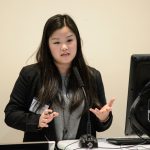 Melissa Low
Melissa LowNational University of Singapore
Many Smart Cities, One Smart Nation: Singapore’s Smart Nation Vision
Download Presentation (PDF file, 2.3 MB)
 Dieter Cuypers
Dieter CuypersFlemish Institute of Technological Research
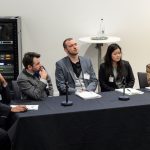 Panel Discussion 2
Panel Discussion 2David Murakami Wood, Ayona Datta, Melissa Low and Dieter Cuypers
Session 3: Regulating Smart Cities 1: Ubicomp and Quality of Life in Smart Cities
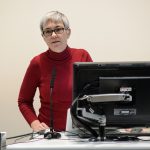 Judith Rauhofer
Judith RauhoferUniversity of Edinburgh
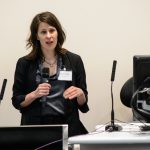 Alison Powell
Alison PowellLSE
Data Intermediaries and Citizenship: Who benefits?
Download Presentation (PPTX file, 14 MB)
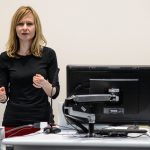 Ewa Luger
Ewa LugerMicrosoft Research, Cambridge
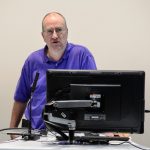 Derek McAuley
Derek McAuleyHorizon
UbiComp and Quality of Life in Smart Cities
Download Presentation (PPTX file, 6.2 MB)
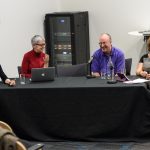 Panel Discussion 3
Panel Discussion 3Judith Rauhofer, Alison Powell, Ewa Luger and Derek McAuley
Session 4: Regulating Smart Cities 2: Policing and Privacy
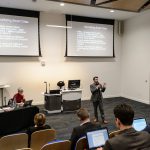 David Murakami Wood
David Murakami WoodQueen’s University, Canada
Smart City: Surveillance City
Download Presentation (PPTX file, 1.5 MB)
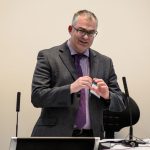 William Webster
William WebsterUniversity of Stirling
The Emergence of Smart CCTV
Download Presentation (PPTX file, 1.3 MB)
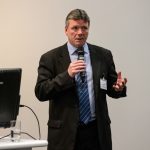 Paul Mackie
Paul MackieCameraWatch
Regulating Smart Cities: Policing and Privacy
Download Presentation (PPT file, 1.6 MB)
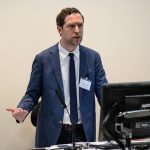 Daniel Trottier
Daniel TrottierErasmus University, Netherlands
Digital vigilantism: Visibility as a Weapon?
Download Presentation (PPTX file, 6.6 MB)
 Panel Discussion 4
Panel Discussion 4David Murakami Wood, William Webster, Paul Mackie and Daniel Trottier
Session 5: Energy/Environment/Climate Change and Smart Cities
 Francesco Sindico
Francesco SindicoUniversity of Strathclyde
Are cities smarter than States when it comes to climate change?
Download Presentation (PPTX file, 5.5 MB)
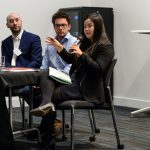 Melissa Low
Melissa LowNational University of Singapore
Energy Smart Cities: Perspectives from a City-State, Singapore
Download Presentation (PDF file, 2.6 MB)
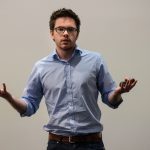 Stuart McIntyre
Stuart McIntyreStrathclyde Business School
Feed-in Tariff design in the UK; cities and economic inequality
Download Presentation (PDF file, 439 KB)
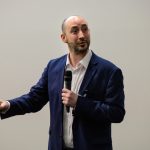 Colin Reid
Colin ReidWheatley Group
Glasgow: a Case Study in housing regeneration through energy, environment and sustainable communities
Download Presentation (PPTX file, 23 MB)
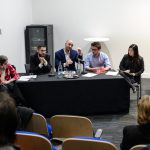 Panel Discussion 5
Panel Discussion 5Francesco Sindico, Melissa Low, Stuart McIntyre and Colin Reid
Session 6: Planning, Design, Transport and Smart Cities
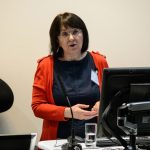 Branka Dimitrijevic
Branka DimitrijevicUniversity of Strathclyde
From transition towns to smart cities: Opportunities and challenges
Download Presentation (PDF file, 2.5 MB)
 Holger Schnadelbach
Holger SchnadelbachUniversity of Nottingham
Embodied Adaptive Architecture
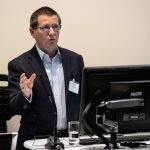 John Miles
John MilesCambridge University
The Challenge of Driverless Cars
Download Presentation (PPTX file, 3.1 MB)
 Daithi Mac Sithigh
Daithi Mac SithighUniversity of Newcastle
Joe Chamberlain’s Smartphone: local government and the sharing economy
Download Presentation (PDF file, 8.6 MB)
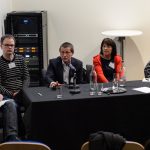 Panel Discussion 6
Panel Discussion 6Branka Dimitrijevic, Holger Schnadelbach, John Miles and Daithi Mac Sithigh
Session 7: Culture, Sports and Participation in a Smart City
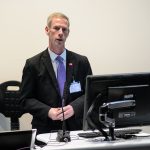 Robert Rogerson
Robert RogersonUniversity of Strathclyde
Developing a Better Approach to Use of City Assets
Download Presentation (PPTX file, 8.6 MB)
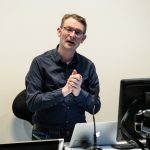 Chris Speed
Chris SpeedEdinburgh College of Art, University of Edinburgh
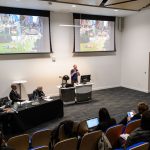 Dieter Cuypers
Dieter CuypersVITO, Belgium
Embracing bottom up – The case of the Trojan Lab in Ghent (BE) and its ‘Living Streets’
Download Presentation (PPTX file, 31.8 MB)
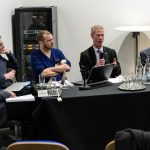 Panel Discussion 7
Panel Discussion 7Robert Rogerson, Chris Speed and Dieter Cuypers
Keynote: Rob Procter
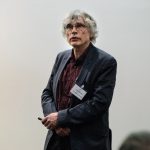 Rob Procter
Rob ProcterUniversity of Warwick
How do Smart Cities Promote Social Welfare?
 Rob Procter Discussion
Rob Procter DiscussionConcluding Thoughts and Cross Cutting Themes
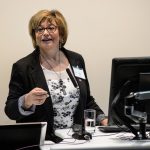 Lilian Edwards
Lilian EdwardsUniversity of Strathclyde
Concluding Remarks
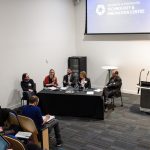 Daithi Mac Sithigh
Daithi Mac SithighUniversity of Newcastle
Concluding Remarks
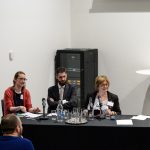 Lucille Brown
Lucille BrownNational Future Cities Development Manager at Glasgow City Council
Concluding Remarks
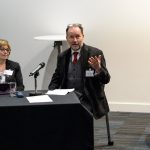 Martin Kretschmer
Martin KretschmerCREATe, University of Glasgow
Concluding Remarks
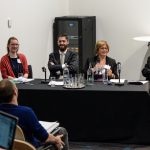 Francesco Sindico
Francesco SindicoStrathclyde Centre for Environmental Law and Governance
Concluding Remarks
Conference Programme
Tuesday 31st March
| 9.30 – 9.45 am | Welcome (Lilian Edwards) |
| 9.45 – 11.00 am | Introductions to Smart Cities: Opportunities and Challenges
|
| 11.00 – 11.30 am | Coffee |
| 11.30 am – 1.00 pm | Understanding Smart Cities Through the Globe (ch) Abhilash Nair, University of StrathclydeKeynote: David Murakami Wood – Queen’s University, Ontario, Canada
|
| 1.00 – 2.00 pm | Lunch |
| 2.00 – 3.30 pm | Regulating Smart Cities 1: Ubicomp and Quality of Life in Smart Cities
Smart cities can be defined as urban environments where extra value and services are created for citizens by the amassing, sharing and harnessing of data, both from digital and real world (“Internet of Things”) sources. Yet such data driven regimes also raise legal and social, as well as technical, issues. Who owns data generated in smart cities? Who gets to buy and sell personal data? If consent is the key to user trust in smart technologies, how can real prior consent be obtained in smart “ambient” environments, including domestic space such as smart homes, fridges and bathrooms?! How can standards help establish interoperability and prevent smart cities becoming the modern version of “company towns”?
|
| 3.30 – 3.50 pm | Coffee |
| 3.50 – 5.30 pm | Regulating Smart Cities 2: Policing and Privacy
The development of smart cities involves the development and integration of new technologies and services, including technologies used for public safety and security. This session will consider SMART ‘surveillance’ and how surveillance oriented technologies are evolving novel in smart city environments. Issues covered include: the emergence of SMART surveillance systems, the degree to which they are transparent and accountable, how they are regulated and governed, and potential future developments in technology and practice. Technologies specifically considered include SMART CCTV, social media and drones.
|
| 6.00 pm | Civic Drinks Reception at Glasgow City Chambers |
Wednesday 1st April
| 9.30 – 11.00 am | Energy/Environment/Climate Change and Smart Cities
|
| 11.00 am – 11.30 pm | Coffee |
| 11.30 – 1.00 pm | Planning, Design, Transport and Smart Cities
|
| 1.00 – 2.15 pm | Lunch |
| 2.15 – 3.45 pm | Culture, Sports and Participation in a Smart City
Smart cities are not just economic or surveillance entities, but positive places for the public to engage, for grassroots participation and perhaps for better or even new forms of artistic and sporting endeavour. Our panelists will report from Glasgow, Ghent and Edinburgh on how network connections can be made in smart cities at a social level; how participation in sporting events can be extended to engender legacy; and what challenges there are for bottom up citizen participation in the “smart cities idea”.
This keynote will explore the tensions between the top-down, technocratic vision of the smart city, as delivered by professional urban scientists, with the simultaneous emergence of bottom-up, community-led ‘citizen urban science’. Procter will suggest that realising the benefits of smart cities depends on being able to reconcile the two. |
| 3.45 – 4.15 pm | Concluding Thoughts and Cross Cutting Themes |

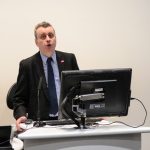 Alistair Brown
Alistair Brown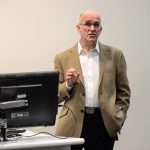 Paul Galwas
Paul Galwas